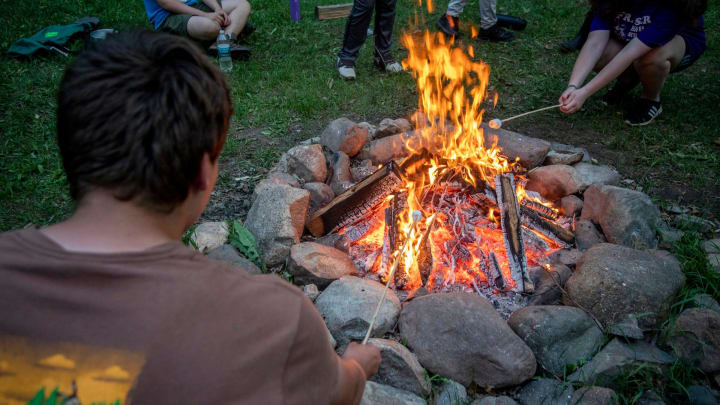Sustainable Camping: Leave No Trace Principles for Eco-Conscious Adventurers

Camping is a popular recreational activity that allows people to immerse themselves in nature and escape the hustle and bustle of everyday life. It offers a unique opportunity to disconnect from technology and reconnect with the natural world.
Many people enjoy camping because it provides a sense of adventure and the thrill of exploration. Whether it's hiking through scenic trails, fishing in serene lakes, or simply relaxing by a campfire, camping brings a sense of peace and tranquility that is hard to find in urban settings.
Additionally, camping is often a social activity, bringing friends and family together to share experiences and create lasting memories. The simplicity of living outdoors, even for a short period, helps people appreciate the beauty of nature and the basics of life. This combination of adventure, relaxation, and social connection makes camping a beloved pastime for many.
Because so many people enjoy camping it is important to implement 'Leave No Trace' principles. Eco-friendly camping is a sustainable approach to enjoying the great outdoors that emphasizes minimal impact on the environment. This practice involves using strategies and tools that reduce waste, conserve natural resources, and maintain the pristine condition of nature.
As outdoor enthusiasts increasingly recognize the importance of preserving natural landscapes, eco-friendly camping has gained popularity. This method not only helps protect ecosystems and wildlife but also ensures that these beautiful spaces can be enjoyed by future generations. By following the principles of Leave No Trace and making thoughtful choices about gear and behavior, campers can significantly reduce their environmental footprint while still enjoying all that nature has to offer.
Here are key principles and tips for leaving no trace while camping:
1. Plan Ahead and Prepare
- Research: Know the regulations and special concerns for the area you plan to visit.
- Permits: Obtain necessary permits and plan for proper waste disposal.
- Gear: Use durable gear to minimize the impact on natural surfaces.
2. Travel and Camp on Durable Surfaces
- Trails and Campsites: Stick to established trails and campsites to avoid damaging vegetation and soil.
- Campsites: Use existing campsites, and avoid expanding them. Camp at least 200 feet away from lakes and streams.
3. Dispose of Waste Properly
- Pack It In, Pack It Out: Carry out all trash, leftover food, and litter.
- Human Waste: Use designated restrooms or dig a cat hole at least 6-8 inches deep and 200 feet from water sources. Pack out toilet paper and hygiene products.
4. Leave What You Find
- Natural Objects: Leave rocks, plants, and other natural objects as you find them.
- Cultural Artifacts: Respect archaeological and historical sites by not touching or removing artifacts.
5. Minimize Campfire Impact
- Campfires: Use a camp stove for cooking. If fires are allowed, use established fire rings and keep fires small. Burn all wood to ash and ensure the fire is completely out before leaving.
- Firewood: Use only small sticks from the ground that can be broken by hand. Avoid cutting live trees or branches.
6. Respect Wildlife
- Observe from a Distance: Do not feed or approach wildlife. Store food and trash securely to avoid attracting animals.
- Pets: Keep pets under control to prevent disturbing wildlife.
7. Be Considerate of Other Visitors
- Noise Levels: Keep noise levels down to maintain the serenity of the natural environment.
- Yield to Others: Yield to other hikers on the trail, and be courteous at campsites.
